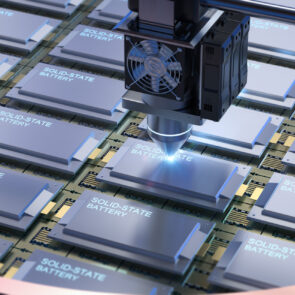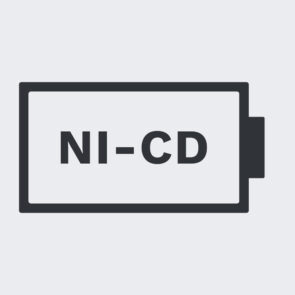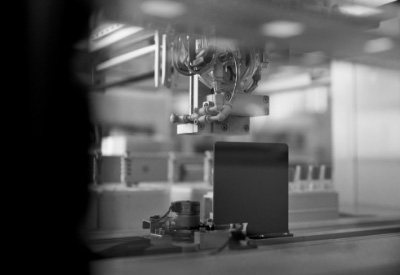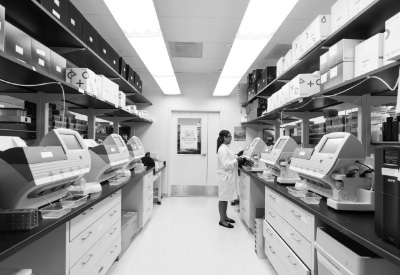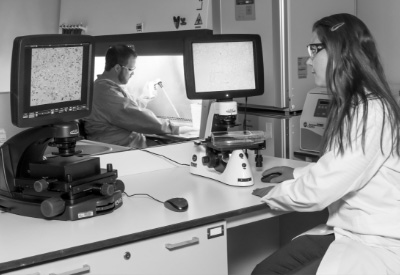January 2025 | Tips & Information
The Impact of Temperature on Battery Performance
Temperature significantly influences the performance and safety of batteries. Understanding these effects is critical for selecting the right power solution for your application. This article explores the effects of temperature on battery performance and highlights the unique advantages of City Labs’ NanoTritium™ technology.
How Temperature Affects Traditional Batteries
Many different types of batteries, including lithium-ion or lead-acid batteries, rely on chemical reactions to generate electricity. These chemical processes are highly sensitive to temperature fluctuations, which can impact their capacity, efficiency, and safety.
High Temperatures
At elevated temperatures, the chemical reactions inside a battery accelerate. This can result in increased self-discharge rates and a shortened lifespan. Prolonged exposure to high heat can also lead to structural damage, such as swelling or leakage. In extreme cases, batteries may experience thermal runaway—a chain reaction that causes overheating, potentially leading to combustion or explosion.
Low Temperatures
Cold temperatures, on the other hand, slow down chemical reactions within traditional batteries. This reduced reaction rate diminishes their ability to deliver power efficiently, causing a noticeable decline in performance. For instance, a lithium-ion battery operating in sub-zero conditions may lose significant capacity, making it unreliable for critical applications.
Because of these limitations, manufacturers typically recommend keeping chemical batteries within a specific temperature range to maintain performance and safety. However, these constraints make these batteries less suitable for use in extreme environments like space, the deep sea, or remote industrial sites.
The Temperature Resilience of NanoTritium™ Batteries
City Labs’ NanoTritium™ batteries offer a revolutionary alternative to conventional power sources, particularly in temperature-sensitive applications. Unlike traditional batteries, NanoTritium™ batteries leverage betavoltaic technology, which converts energy from the radioactive decay of tritium into a consistent and long-lasting power supply.
Stable Power Across Temperature Extremes
NanoTritium™ batteries leverage the robust and predictable process of radioactive decay to deliver reliable power across a wide temperature range, from -55°C to +150°C, as confirmed by rigorous independent battery testing. Unlike traditional chemical batteries, which often fail in extreme conditions, these nuclear batteries maintain functionality even as their power output adapts to temperature changes.
As noted in the 2017 research paper Betavoltaic Performance Under Extreme Temperatures, betavoltaic cells deliver increased power as temperatures drop, making them particularly well-suited for cold environments where traditional batteries underperform. At elevated temperatures, while the power output may temporarily decrease, it is not a permanent effect. The performance of NanoTritium™ batteries fully normalizes as temperatures return to standard operating conditions.
This combination of adaptability and resilience ensures that NanoTritium™ batteries remain a dependable and durable power source for even the most temperature-sensitive applications, from space exploration to deep-sea monitoring.
Solid-State Design for Enhanced Safety
Traditional batteries often pose safety risks when exposed to extreme temperatures. High heat can cause liquid electrolytes to leak, while freezing conditions may lead to irreversible damage to the battery’s structure.
In contrast, NanoTritium™ batteries feature a solid-state design with no liquid components, significantly reducing the risk of leakage, swelling, or thermal failure. This robust construction enhances their reliability in even the harshest conditions.
Applications in Extreme Environments
The exceptional temperature tolerance of NanoTritium™ batteries opens up possibilities for their use in a wide variety of applications where traditional batteries fall short.
Here are some key areas where these batteries excel:
Space Exploration
Space presents one of the most challenging environments for battery performance, with temperatures ranging from intense heat on sunlit surfaces to frigid cold in the shadowed regions. NanoTritium™ batteries are ideally suited for powering spacecraft instruments, sensors, and other systems that must operate reliably in these extreme conditions.
Remote Industrial and Deep-Sea Applications
Deep-sea exploration and remote industrial operations often occur in cold, high-pressure environments where conventional batteries underperform. The consistent energy output of NanoTritium™ batteries ensures uninterrupted power for sensors, monitoring equipment, and other critical devices in these demanding settings.
Medical Devices
Medical devices, such as pacemakers or drug delivery systems, require long-lasting and reliable power sources that can perform effectively within the human body’s temperature range. NanoTritium™ batteries provide a safe and stable solution for these life-critical applications, reducing the need for frequent replacements.
Long-Term Reliability in Extreme Conditions
The long operational life of NanoTritium™ batteries further enhances their appeal for temperature-sensitive applications. These batteries can provide consistent power for over 20 years, making them a cost-effective and low-maintenance solution.
Whether deployed in a satellite orbiting Earth or a sensor in the deep sea, NanoTritium™ batteries deliver unmatched reliability.
A Battery for Anywhere
Temperature is a critical factor in determining battery performance and safety. While traditional chemical batteries are prone to failure in extreme conditions, City Labs’ NanoTritium™ batteries offer a superior alternative. Their temperature resilience, solid-state safety, and long-lasting power make them the ideal choice for applications in space, remote environments, and beyond.
If you think NanoTritium™ batteries could power your next project, contact us today to learn more about how we can meet your energy needs.



